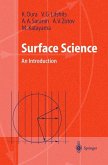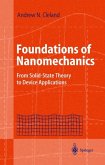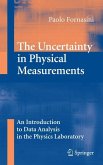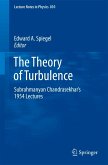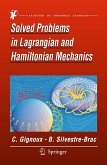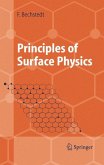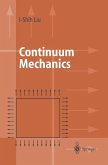In many situations, physical quantities are perturbed or evolve in a not fully predictable way. We then speak about noise or fluctuations and we are generally faced to different questions such as: What are the correct physical models to describe them? What are the most practical mathematical tools to deal with them? How can relevant information be extracted in the presence of noise? Noise theory and application to physics provides a precise description of the theoretical background and practical tools for noise and fluctuation analyses. It not only introduces basic mathematical descriptions and properties of noise and fluctuations but also discusses the physical origin of different noise models and presents some statistical methods which optimize measurements in the presence of such fluctuations. Noise theory and application to physics investigates a number of ideas about noise and fluctuations in a single book in relation with probability and stochastic processes, information theory, statistical physics and statistical inference. The different notions are illustrated with many application examples from physics and engineering science and problems with solutions allow the reader to both check his understanding and to deepen some aspects. Indeed, the main objective of Noise theory and application to physics is to be a practical guide for the reader for going from fluctuation to information. It will thus be of great interest to undergraduate or postgraduate students and researchers in physics and engineering sciences.
I had great pleasure in reading Philippe Refregier's book on the theory of noise and its applications in physics. The main aim of the book is to present the basic ideas used to characterize these unwanted random signals that obscure information content. To this end, the author devotes a sigificant part of his book to a detailed study of the probabilistic foundations of fluctuation theory. Following a concise and accurate account of the basics of probability the ory, the author includes a detailed study of stochastic processes, emphasizing the idea of the correlation function, which plays a key role in many areas of physics. Physicists often assume that the noise perturbing a signal is Gaussian. This hypothesis is justified if one can consider that the noise results from the superposition of a great many independent random perturbations. It is this fact that brings the author to discuss the theory underlying the addition of random variables, accompanied by a wide range of illustrative examples. Since noise affects information, the author is naturally led to consider Shannon's information theory, which in turn brings him to the altogether fundamental idea of entropy. This chapter is completed with a study of com plexity according to Kolmogorov. This idea is not commonly discussed in physics and the reader will certainly appreciate the clear presentation within these pages.
I had great pleasure in reading Philippe Refregier's book on the theory of noise and its applications in physics. The main aim of the book is to present the basic ideas used to characterize these unwanted random signals that obscure information content. To this end, the author devotes a sigificant part of his book to a detailed study of the probabilistic foundations of fluctuation theory. Following a concise and accurate account of the basics of probability the ory, the author includes a detailed study of stochastic processes, emphasizing the idea of the correlation function, which plays a key role in many areas of physics. Physicists often assume that the noise perturbing a signal is Gaussian. This hypothesis is justified if one can consider that the noise results from the superposition of a great many independent random perturbations. It is this fact that brings the author to discuss the theory underlying the addition of random variables, accompanied by a wide range of illustrative examples. Since noise affects information, the author is naturally led to consider Shannon's information theory, which in turn brings him to the altogether fundamental idea of entropy. This chapter is completed with a study of com plexity according to Kolmogorov. This idea is not commonly discussed in physics and the reader will certainly appreciate the clear presentation within these pages.
From the reviews:
"Philippe Réfrégier's book is an introduction to the fundamental principles of randomness that can be encountered in a physicist's everyday life. ... Réfrégier's book is a good textbook for physics graduate students and researchers who want to go a little deeper into probability theory ... . I would also recommend it to mathematicians who want to get a different point of view on probability theory. Students will undoubtedly profit from a variety of exercises that come with ... solutions." (Achim Klenke, Zentralblatt MATH, Vol. 1092 (18), 2006)
"The book provides a good presentation of the statistical basis for theories of noise in physics. ... Noise theory and application to physics provides a precise description of the theoretical background and practical tools for noise and fluctuation analyses. It will thus be of great interest to undergraduate or postgraduate students and researchers in physics and the engineering sciences." (Stefan Adams, Mathematical Reviews, Issue 2006 e)
"Philippe Réfrégier's book is an introduction to the fundamental principles of randomness that can be encountered in a physicist's everyday life. ... Réfrégier's book is a good textbook for physics graduate students and researchers who want to go a little deeper into probability theory ... . I would also recommend it to mathematicians who want to get a different point of view on probability theory. Students will undoubtedly profit from a variety of exercises that come with ... solutions." (Achim Klenke, Zentralblatt MATH, Vol. 1092 (18), 2006)
"The book provides a good presentation of the statistical basis for theories of noise in physics. ... Noise theory and application to physics provides a precise description of the theoretical background and practical tools for noise and fluctuation analyses. It will thus be of great interest to undergraduate or postgraduate students and researchers in physics and the engineering sciences." (Stefan Adams, Mathematical Reviews, Issue 2006 e)




